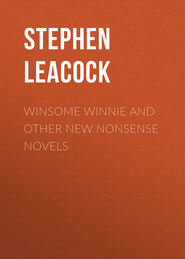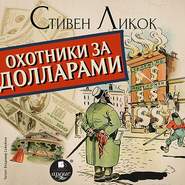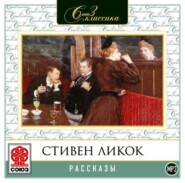По всем вопросам обращайтесь на: info@litportal.ru
(©) 2003-2025.
✖
The Hohenzollerns in America
Автор
Год написания книги
2019
Настройки чтения
Размер шрифта
Высота строк
Поля
"Neighbour Jephson's son, this is my little gal, as good and sweet a little gal, as mindful of her old father, as you'll find in all New England. Neighbour Jephson's son, she's been my all in all to me, this little gal, since I laid her mother in the ground five Christmases ago—" The speaker is slightly overcome and leans against a cardboard clock for strength: he recovers and goes on—"Hope, this is Neighbour Jephson's son, new back from over the seas, as fine a lad, gal, if he's like the folk that went before him, as ever followed the sea. Hope, your hand. My boy, your hand. See to his comfort, Hope, while I go and read the Good Book a spell in the barnyard."
The Indian Formula
Many people, tired of the empty phrases of society, look back wistfully to the simple direct speech of savage life. Such persons will find useful the usual form of introduction (the shorter form) prevalent among our North American Indians (at least as gathered from the best literary model):
"Friends and comrades who are worthy,
See and look with all your eyesight,
Listen with your sense of hearing,
Gather with your apprehension—
Bow your heads, O trees, and hearken.
Hush thy rustling, corn, and listen;
Turn thine ear and give attention;
Ripples of the running water,
Pause a moment in your channels—
Here I bring you,—Hiawatha."
The last line of this can be changed to suit the particular case. It can just as easily read, at the end, "Here is Henry Edward Eastwood," or, "Here is Hal McGiverin, Junior," or anything else. All names fit the sense. That, in fact, was the wonderful art of Longfellow—the sense being independent of the words.
The Platform Introduction
Here is a form of introduction cruelly familiar to those who know it. It is used by the sour-looking villain facetiously called in newspaper reports the "genial chairman" of the meeting. While he is saying it the victim in his little chair on the platform is a target for the eyes of a thousand people who are wondering why he wears odd socks.
"The next speaker, ladies and gentlemen, is one who needs no introduction to this gathering. His name" (here the chairman consults a little card) "is one that has become a household word. His achievements in" (here the chairman looks at his card again, studies it, turns it upside down and adds) "in many directions are familiar to all of you." There is a feeble attempt at applause and the chairman then lifts his hand and says in a plain business-like tone—"Will those of the audience who are leaving kindly step as lightly as possible." He is about to sit down, but then adds as a pleasant afterthought for the speaker to brood over—"I may say, while I am on my feet, that next week our society is to have a REAL treat in hearing—et cetera and so forth—"
II—HOW TO OPEN A CONVERSATION
After the ceremony of introduction is completed the next thing to consider is the proper way to open a conversation. The beginning of conversation is really the hardest part. It is the social equivalent to "going over the top." It may best be studied in the setting and surroundings of the Evening Reception, where people stand upright and agonise, balancing a dish of ice-cream. Here conversation reaches its highest pitch of social importance. One must talk or die. Something may be done to stave it off a little by vigorous eating. But the food at such affairs is limited. There comes a point when it is absolutely necessary to say something.
The beginning, as I say, is the hardest problem. Other communities solve it better than we do.
The Chinese System
In China conversation, between strangers after introduction, is always opened by the question, "And how old are YOU?" This strikes me as singularly apt and sensible. Here is the one thing that is common ground between any two people, high or low, rich or poor—how far are you on your pilgrimage in life?
The Penetentiary Method
Compare with the Chinese method the grim, but very significant formula that is employed (I believe it is a literal fact) in the exercise yards of the American penitentiaries. "What have YOU brought?" asks the San Quentin or Sing Sing convict of the new arrival, meaning, "And how long is your sentence?" There is the same human touch about this, the same common ground of interest, as in the Chinese formula.
Polite Society
But in our polite society we have as yet found no better method than beginning with a sort of medical diagnosis—"How do you do?" This admits of no answer. Convention forbids us to reply in detail that we are feeling if anything slightly lower than last week, but that though our temperature has risen from ninety-one-fifty to ninety-one-seventy-five, our respiration is still normal.
Still worse is the weather as an opening topic. For it either begins and ends as abruptly as the medical diagnosis, or it leads the two talkers on into a long and miserable discussion of the weather of yesterday, of the day before yesterday, of last month, of last year and the last fifty years.
Let one beware, however, of a conversation that begins too easily.
The Mutual Friends' Opening
This can be seen at any evening reception, as when the hostess introduces two people who are supposed to have some special link to unite them at once with an instantaneous snap, as when, for instance, they both come from the same town.
"Let me introduce Mr. Sedley," said the hostess. "I think you and Mr. Sedley are from the same town, Miss Smiles. Miss Smiles, Mr. Sedley."
Off they go at a gallop. "I'm so delighted to meet you," says Mr. Sedley. "It's good to hear from anybody who comes from our little town." (If he's a rollicking humourist, Mr. Sedley calls it his little old "burg.")
"Oh, yes," answers Miss Smiles. "I'm from Winnipeg too.
I was so anxious to meet you to ask if you knew the
McGowans. They're my greatest friends at home."
"The—who?" asks Mr. Sedley.
"The McGowans—on Selkirk Avenue."
"No-o, I don't think I do. I know the Prices on Selkirk
Avenue. Of course you know them."
"The Prices? No, I don't believe I do—I don't think I ever heard of the Prices. You don't mean the Pearsons? I know them very well."
"No, I don't know the Pearsons. The Prices live just near the reservoir."
"No, then I'm sure I don't know them. The Pearsons live close to the college."
"Close to the College? Is it near the William Kennedys?"
"I don't think I know the William Kennedys."
This is the way the conversation goes on for ten minutes.
Both Mr. Sedley and Miss Smiles are getting desperate.
Their faces are fixed. Their sentences are reduced to—
"Do you know the Petersons?"
"No. Do you know the Appleby's?"
"No. Do you know the Willie Johnsons?"
"No."
Then at last comes a rift in the clouds. One of them happens to mention Beverley Dixon. The other is able to cry exultingly—
"Beverley Dixon? Oh, yes, rather. At least, I don't KNOW him, but I used often to hear the Applebys speak of him."
And the other exclaims with equal delight—














